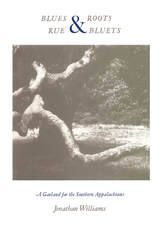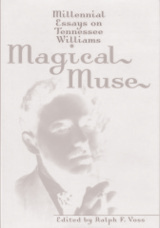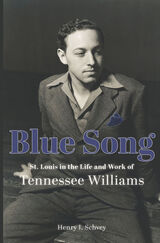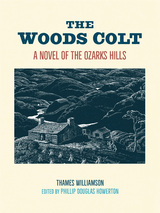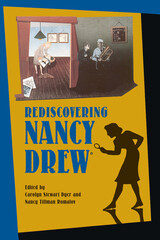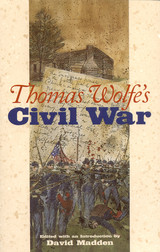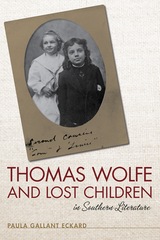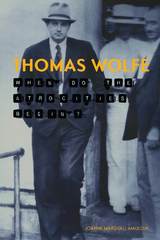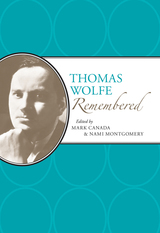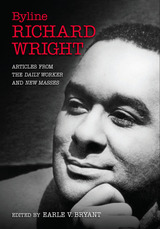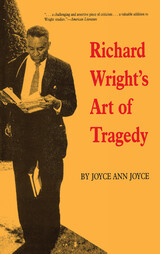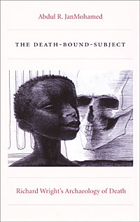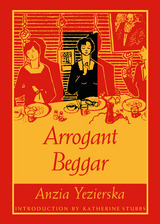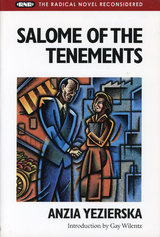Thomas Wolfe and Lost Children in Southern Literature
University of Tennessee Press, 2016
Cloth: 978-1-62190-245-4 | eISBN: 978-1-62190-246-1
Library of Congress Classification PS3545.O337L734 2016
Dewey Decimal Classification 813.54
Cloth: 978-1-62190-245-4 | eISBN: 978-1-62190-246-1
Library of Congress Classification PS3545.O337L734 2016
Dewey Decimal Classification 813.54
ABOUT THIS BOOK | AUTHOR BIOGRAPHY | REVIEWS
ABOUT THIS BOOK
“Paula Gallant Eckard not only explores the utterly teachable The Lost Boy, she also provides substantive and provocative readings of a wide variety of contemporary Southern fiction. Through her critical analysis and admirable focus on “lost” children and children suffering loss, Eckard examines how some contemporary writers provide new stories of the Civil War, the role of other wars in Southern lives, and the centrality of family.”
—Margaret M. Bauer, Rivers Chair of Southern Literature at East Carolina University
First published in 1937, Thomas Wolfe’s The Lost Boy gives name to the theme of lost children that has permeated much of southern literature and provides a template for telling their stories. In Thomas Wolfe and Lost Children in Southern Literature, which grew out of many years of teaching The Lost Boy and other works of southern literature, Paula Gallant Eckard uses Wolfe’s novel as a starting point to trace thematic connections among contemporary southern novels that are comparably evocative in their treatment of lostness.
Eckard explores six authors and their works: Fred Chappell’s I Am One of You Forever, Mark Powell’s Prodigals, Kaye Gibbons’s Ellen Foster, Sue Monk Kidd’s The Secret Life of Bees, Bobbie Anne Mason’s In Country, Robert Olmstead’s Coal Black Horse, and Lee Smith’s On Agate Hill. Though each novel is unique and a product of its own time period, all the novels explored here are cast against the backdrop of the South during eras of conflict and change. Like The Lost Boy, these novels reflect a sense of history, a sense of loss associated with that history, and an innate love of story and narrative, as well as representations of work that historically have defined the lives of individuals and families throughout the South.
In its artistic treatment of lostness, The Lost Boy creates a significant literary legacy. As Eckard demonstrates, that legacy continues in the form of these six contemporary authors who, in writing about the South, perpetuate Wolfe’s efforts as they also create or find the lost child in new ways.
PAULA GALLANT ECKARD is an associate professor of English and the director of the American studies program at the University of North Carolina at Charlotte. She is the author of Maternal Body and Voice in Toni Morrison, Bobbie Ann Mason, and Lee Smith.
—Margaret M. Bauer, Rivers Chair of Southern Literature at East Carolina University
First published in 1937, Thomas Wolfe’s The Lost Boy gives name to the theme of lost children that has permeated much of southern literature and provides a template for telling their stories. In Thomas Wolfe and Lost Children in Southern Literature, which grew out of many years of teaching The Lost Boy and other works of southern literature, Paula Gallant Eckard uses Wolfe’s novel as a starting point to trace thematic connections among contemporary southern novels that are comparably evocative in their treatment of lostness.
Eckard explores six authors and their works: Fred Chappell’s I Am One of You Forever, Mark Powell’s Prodigals, Kaye Gibbons’s Ellen Foster, Sue Monk Kidd’s The Secret Life of Bees, Bobbie Anne Mason’s In Country, Robert Olmstead’s Coal Black Horse, and Lee Smith’s On Agate Hill. Though each novel is unique and a product of its own time period, all the novels explored here are cast against the backdrop of the South during eras of conflict and change. Like The Lost Boy, these novels reflect a sense of history, a sense of loss associated with that history, and an innate love of story and narrative, as well as representations of work that historically have defined the lives of individuals and families throughout the South.
In its artistic treatment of lostness, The Lost Boy creates a significant literary legacy. As Eckard demonstrates, that legacy continues in the form of these six contemporary authors who, in writing about the South, perpetuate Wolfe’s efforts as they also create or find the lost child in new ways.
PAULA GALLANT ECKARD is an associate professor of English and the director of the American studies program at the University of North Carolina at Charlotte. She is the author of Maternal Body and Voice in Toni Morrison, Bobbie Ann Mason, and Lee Smith.
See other books on: 1900-1938 | Children's & Young Adult Literature | Comparative Literature | Loss (Psychology) in literature | Wolfe, Thomas
See other titles from University of Tennessee Press



